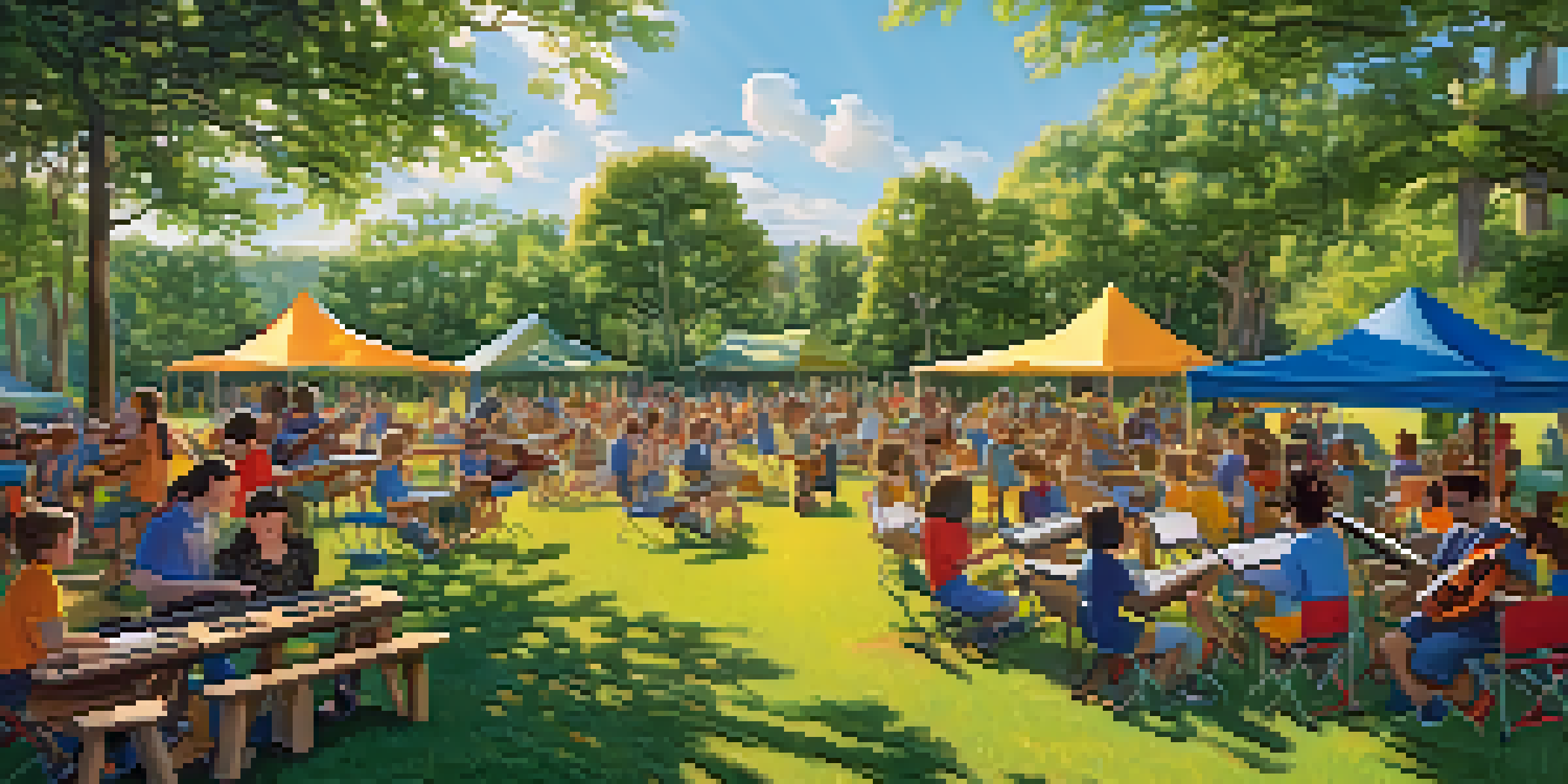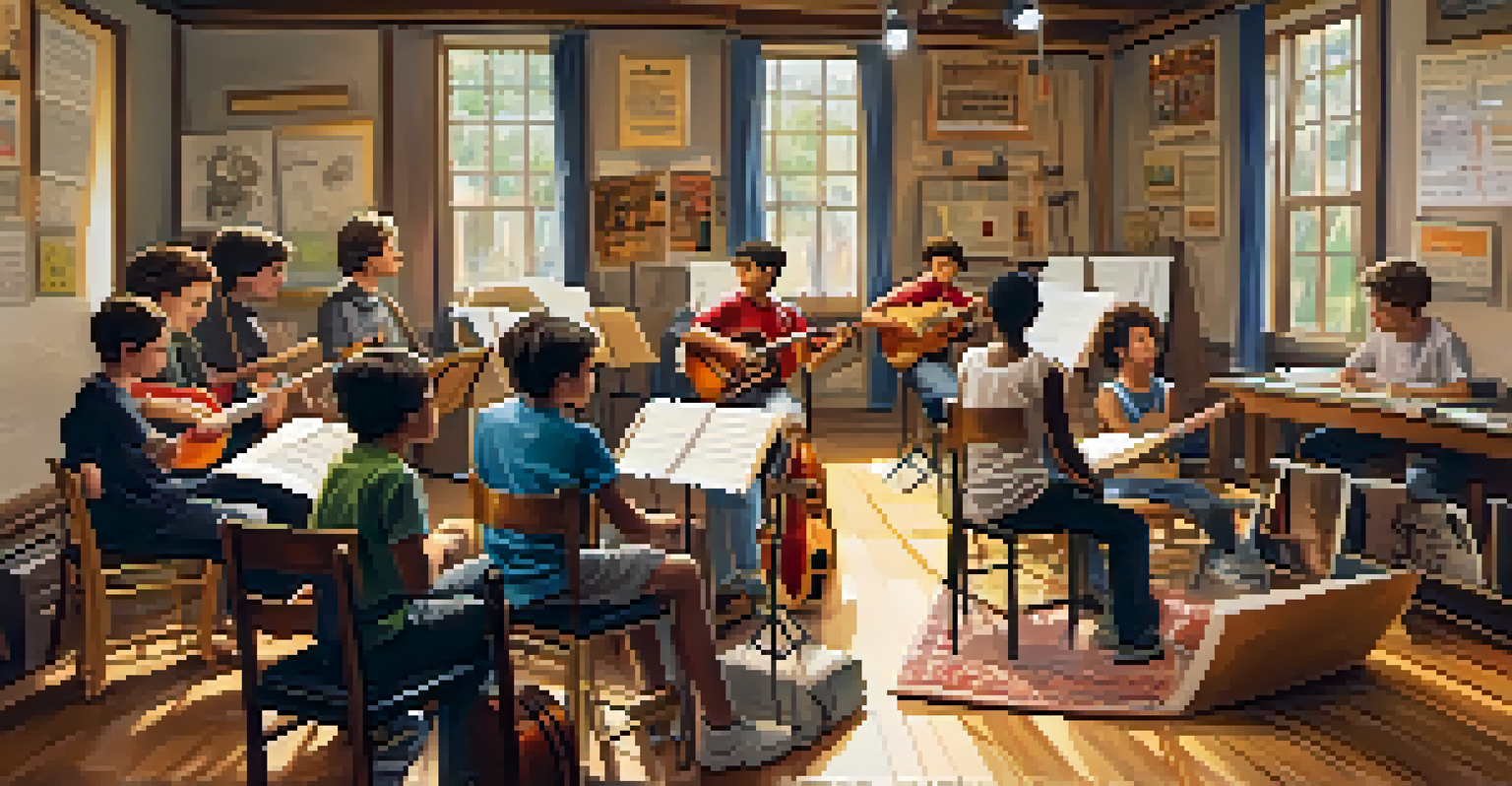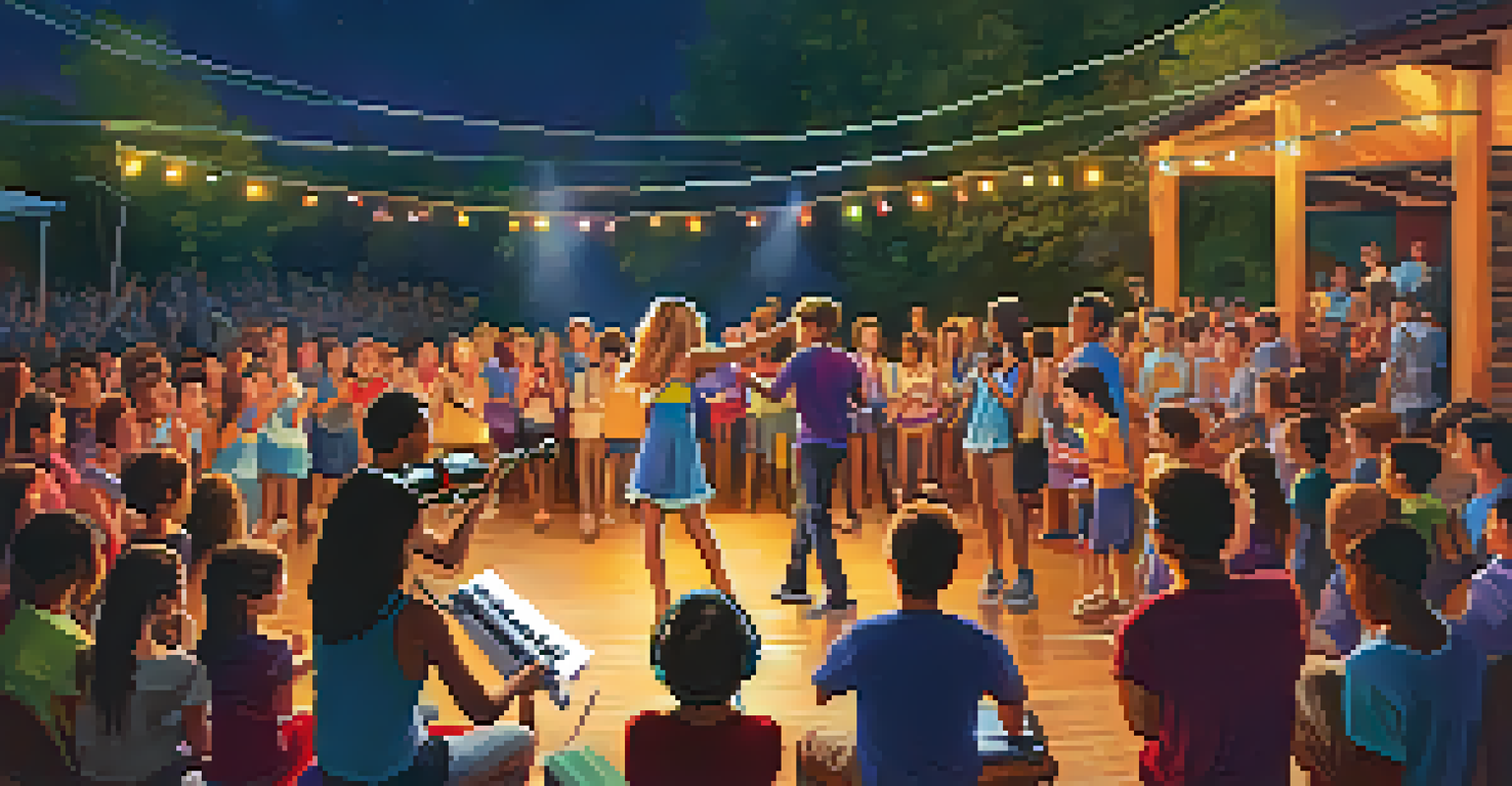The Impact of Music Camps on Young Musicians in Austin

The Role of Music Camps in Austin's Musical Landscape
Austin is often hailed as the live music capital of the world, and music camps play a crucial role in nurturing young talent. These camps provide an environment where budding musicians can explore their passion for music while honing their skills. They also serve as a bridge between formal education and real-world performance, offering practical experience that is invaluable for young artists.
Music can change the world because it can change people.
For many young musicians, music camps are their first taste of collaboration outside of school. They meet peers who share their interests and passion, creating a supportive community that encourages creativity and growth. This communal experience can be incredibly motivating, inspiring them to push their boundaries and explore new genres and techniques.
Additionally, music camps in Austin often feature workshops led by experienced musicians and educators. These sessions not only impart technical skills but also teach valuable lessons about the music industry, performance etiquette, and the importance of networking. Overall, these camps are essential in shaping the next generation of musicians.
Building Confidence Through Performance Opportunities
One of the standout features of music camps is the emphasis on performance. Young musicians get the chance to showcase their talents in front of an audience, which can be a transformative experience. Performing helps them overcome stage fright and builds their confidence, essential qualities for any aspiring artist.

At these camps, students often participate in recitals or showcases that highlight what they’ve learned. This not only boosts their self-esteem but also provides them with invaluable feedback from peers and instructors. It's a safe space for experimentation, where mistakes are seen as learning opportunities rather than failures.
Music Camps Build Young Talent
Austin's music camps nurture young musicians by providing collaborative experiences and practical performance opportunities.
Moreover, the thrill of performing can ignite a lifelong passion for music. For many young musicians, these moments on stage are the highlight of their camp experience, leading them to pursue music more seriously in the future. Confidence gained here often translates into other areas of their lives, reinforcing the camp's lasting impact.
Fostering Creativity and Musical Exploration
Music camps encourage young musicians to explore their creativity, often going beyond traditional music lessons. Many camps incorporate elements of songwriting, composition, and improvisation, allowing students to express themselves in unique ways. This exploration can lead to the discovery of new musical interests and styles.
Without music, life would be a mistake.
By providing a diverse curriculum, music camps help students break free from the confines of their usual practice routines. They are encouraged to experiment with different instruments and genres, sparking a joy for music that goes beyond mere technical proficiency. This kind of creative freedom is often hard to come by in more structured educational settings.
Furthermore, the collaborative atmosphere of music camps fosters innovative thinking. When students work together on projects, they learn to combine their ideas and talents, resulting in fresh and exciting musical creations. These experiences can be pivotal in shaping their artistic identities.
Building Lifelong Friendships and Networking
Attending music camps allows young musicians to form friendships that often last a lifetime. Being surrounded by others who share the same passion for music creates a bond that transcends age and background. Many campers find their creative partners or even future bandmates during these formative experiences.
These friendships also provide a support system that encourages personal and artistic growth. Young musicians can collaborate, share resources, and motivate each other long after the camp is over. This network can be incredibly beneficial as they navigate their musical journeys.
Friendships and Networking Flourish
These camps foster lasting friendships and valuable networks that support personal and artistic growth.
Additionally, the connections made at music camps can lead to professional opportunities down the line. Camp alumni often find themselves in the same industry, creating a community of like-minded individuals who can help each other succeed. These relationships are just as crucial as the skills learned during camp.
Developing Discipline and Time Management Skills
Music camps are structured environments that teach young musicians the importance of discipline and time management. With daily schedules that include practice sessions, lessons, and performances, campers learn to balance their time effectively. This discipline is essential not only in music but in all areas of life.
As students commit to practicing their instruments and preparing for performances, they develop a strong work ethic that can carry over into their academic pursuits. The skills they acquire at camp can help them manage their responsibilities more efficiently, setting them up for success in the future.
Moreover, the experience of juggling various aspects of their musical education helps young musicians cultivate resilience. They learn to adapt to challenges, whether it’s a difficult piece of music or a last-minute performance change. This resilience is a valuable life lesson that extends beyond the world of music.
Enhancing Music Literacy and Technical Skills
One of the primary benefits of music camps is the focus on enhancing music literacy and technical skills. Young musicians receive instruction from knowledgeable educators who help them understand music theory, sight-reading, and ear training. This foundational knowledge is essential for any musician looking to advance their craft.
In addition to theory, campers often engage in hands-on practice that reinforces their technical abilities. Whether through group lessons or individual coaching, young musicians are challenged to improve their instrument proficiency. This targeted instruction leads to noticeable progress, which can be incredibly motivating.
Instilling a Love for Music
Music camps inspire a lifelong passion for music, encouraging participants to pursue their musical journeys beyond camp.
Furthermore, music camps often introduce students to various musical genres and styles, broadening their musical horizons. By understanding different approaches to music, young musicians become more versatile artists. This versatility enhances their overall musicianship and prepares them for diverse performance opportunities.
Encouraging a Lifelong Love for Music
Perhaps the most significant impact of music camps is their ability to instill a lifelong love for music. By creating a fun and engaging learning environment, these camps inspire young musicians to continue their musical journeys long after the summer ends. The joy of making music becomes a cherished part of their lives.
Many campers leave with a newfound passion that motivates them to pursue music in various forms—whether through school bands, community orchestras, or personal projects. The connections they make with their peers and instructors often fuel this passion, encouraging them to stay involved in the music community.

Ultimately, music camps serve as a launchpad for young musicians, allowing them to explore their potential and discover the joy of music. This love for music can lead to fulfilling careers, enriching hobbies, and a deeper appreciation for the arts throughout their lives.